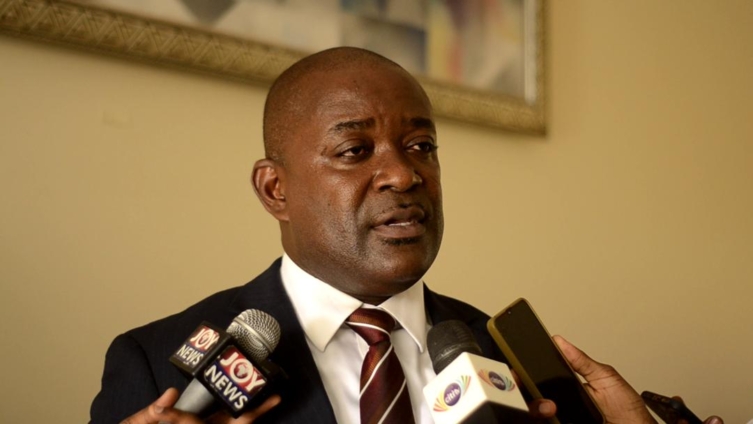The Ghana Tertiary Education Commission (GTEC) has lifted its ban on the processing of new accreditation applications for academic programmes from public universities, including technical universities.
The suspension which took effect from September 2023 was to sanitise the accreditation space, following persistent non-compliance by some institutions with the accreditation requirements.
Director-General of the Commission, Professor Ahmed Abdulai Jinapor, says new applications will be processed after clearing the backlog and granting re-accreditation to expired programs.
The commission says it will start new accreditation applications begging February 1, 2024.
“Informed by the work that we’ve done being able to clear the backlog, we’ve given accreditation to so many programs close to 1000 within the last quarter. The commission has come to the decision that we are going to lift the ban,” he said.
The 2022 Auditor-General’s report revealed a significant number of unaccredited programmes offered by some public universities in the country.
Authorities at the universities had argued they had initiated processes but delayed after the GTEC failed to expedite their application.
This subsequently saw a freeze on application for accreditation of new programs.
The Commission has been meeting with Vice-Chancellors of Technical Universities on measures rolled-out for effective implementation and enrollment of programs.
Prof. Abdulai Jinapor says the public universities must prove the relevance of new program introductions to the nation’s development during applications for accreditation.
GTEC has instituted an Acceleration Board to fast-track processes for new accreditation applications.
The Technical Universities’ Vice-Chancellors Association welcomed the decision and believes the board would help sanitise the sector.
Vice Chancellor of the Sunyani Technical University, Professor Kwadwo Appiah Adinkra is upbeat about the expedited process for accreditation.
“Currently, as soon as you put in an application for program accreditation, it doesn’t take long. You’ll hear from them at every stage that the process gets to, and you’re informed about it. Hitherto, it wasn’t as easy at that. Things are very well streamlined now,” he said.
Meanwhile, the GTEC is cautioning public academic institutions against running unaccredited programmes which would present dire consequences to students and graduates of the programs.
“We’re working with the national service secretariat to ensure that programs that are not accredited, graduates from such institutions do not undertake the mandatory national service. In fact, if it’s becomes necessary programs that are not accredited will hav graduates from such programs not receiving any employment,” Prof. Abdulai Jinapor added.
Latest Stories
-
Two jailed 15 years each for robbery in Kumasi
18 minutes -
Spiritual Society distances itself from Gblorkope Shrine murder, pledges full cooperation with police
28 minutes -
Man arrested for robbery at Millennium City
39 minutes -
Gisèle Pelicot given France’s highest award
46 minutes -
French prisoner escapes in fellow inmate’s bag, officials say
57 minutes -
Disappointment as Drake’s final Wireless show ends after 40 minutes
1 hour -
EU delays retaliatory trade tariffs against US
1 hour -
EU flags Algeria and others as high-risk in new money laundering watchlist update
1 hour -
SA police minister suspended over organised crime allegations
2 hours -
Trump will be hosted by King at Windsor during second state visit
2 hours -
WAFCON 2024: ‘We have destiny in our hands’ – Black Queens boss Bjorkegren
5 hours -
CIHRM Ghana confers chartered status on 28 members, 170 associates
6 hours -
Government gross financing needs to remain elevated; debt service obligations are large – IMF warns
7 hours -
Deloitte appoints George Ankomah as Deputy Chair of Africa Board
7 hours -
Palmer inspires Chelsea to victory over PSG to claim Club World Cup
7 hours

